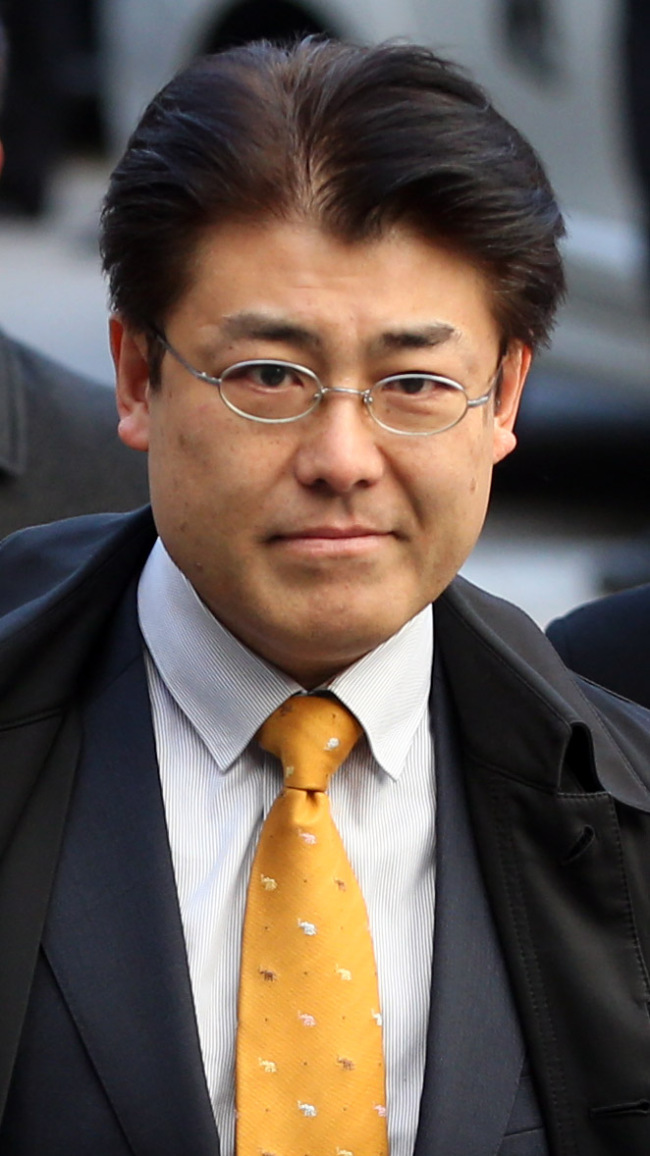A lower court cleared a Japanese reporter Thursday of defaming South Korean President Park Geun-hye by reporting rumors about her whereabouts during a deadly ferry disaster last year.
The Seoul Central District Court handed down the not guilty verdict to Tatsuya Kato, former Seoul bureau chief for Japanese right-wing daily Sankei Shimbun, citing press freedom in a democratic society.
“Kato’s article was inappropriate in some ways, but press freedom, the core of democracy and its development, should be protected as long as South Korea is a democratic country,” the judge Lee Dong-keun said in the ruling. “As the Constitution stipulates press freedom, criticism of the nation’s leader should be protected as much as possible.”
Press freedom rankings by Reporters Without Borders placed South Korea at 60th among 180 countries in the index, down three notches from a year earlier.
 |
| Tatsuya Kato. (Yonhap) |
The court said the article defamed the president as a person, but not as the nation’s leader, because the article mainly raised suspicions over the Sewol ferry disaster. The court also added that the rumors surrounding Park and her former aide Jeong Yun-hoe were not true, based on Jeong’s phone records.
Prosecutors previously called for an 18-month prison term for Kato, saying he intended to libel the South Korean president by reporting false rumors without verifying the facts.
Kato was indicted in October for running a column on Aug. 3, 2014 about rumors circulating online that the unmarried president was absent for seven hours to secretly meet Jeong at the time of the sinking of the Sewol ferry on April 16.
Cheong Wa Dae has so far not disclosed where Park was at the time of the maritime disaster.
The Park administration had come under fire for its botched rescue operation during the sinking, the nation’s worst maritime accident, which killed 304 people, most of whom were teenagers on a school trip.
Kato, in his defense, said he did not have any intention to defame her and the article was meant to deliver objective reports on Korean politics and society as the Japanese public takes great interest in Park’s moves.
Kato’s lawyer argued that Kato wrote the column based on rumors that were already published in the Chosun Ilbo, South Korea’s largest newspaper. Chosun Ilbo’s column in July last year prompted rumors after questioning Park’s whereabouts on the day of the ferry sinking.
The verdict came amid growing concerns over how the case could deal a blow to Korea-Japan relations soured by historical and territorial issues.
The Japanese government requested leniency from Korea in the ruling for Kato several times, saying the Kato case had been a hurdle in mending bilateral ties.
Before the trial began, the Foreign Ministry sent a letter to the Justice Ministry to seriously consider Japan’s request in light of recent signs of improvement in Korea-Japan relations and the upcoming 50th anniversary of the bilateral normalization treaty.
The court read out the Foreign Ministry’s stance before the trial began at around 2 p.m.
“To the Japanese government, we made it clear that Korea expects such reports of clearly false rumors not to pose a burden on Korea-Japan relations again,” a senior official at Seoul’s Foreign Ministry said on the customary condition of anonymity.
Both prosecutors and Kato have one week to appeal.
By Ock Hyun-ju (laeticia.ock@heraldcorp.com)

